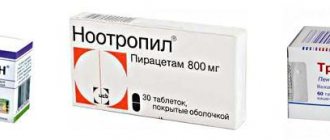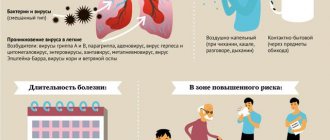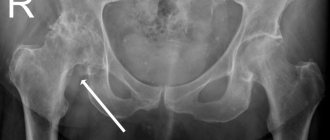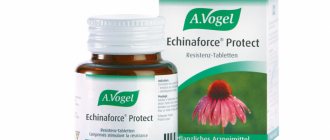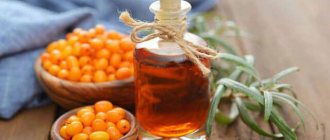Coronavirus continues to set the tone for pharmacy sales. Over-the-counter drugs that stimulate the immune system are in high demand. These are the well-known Arbidol, Ingavirin, Cycloferon, Kagocel, Ergoferon, Trekrezan, Amiksin and its brothers, Triazavirin and others. These drugs generate a large share of income and are easily sold, since they practically do not require recommendations: people know about them thanks to advertising campaigns. It is also very convenient that these drugs, according to the instructions, help fight against the entire spectrum of influenza and ARVI viruses. The essence of the action is this: you need to activate the immune system, and the body will cope with viruses, including the SARS-CoV-2 virus. Logical. But is this really so?
To date, this group of drugs remains controversial. According to Alexander Hadjidis, chief clinical pharmacologist of St. Petersburg, we do not have immunomodulatory drugs for the treatment of ARVI with proven effectiveness, as in the rest of the world. However, this does not mean that the drugs cannot work in principle. This means that adequate, well-controlled clinical studies in large numbers of people are required to prove their effects.
In addition, St. Petersburg medical scientists suggest that the use of “immunomodulators” for severe viral infections, including coronavirus infection, may be unsafe. Coronavirus infection can cause a potentially lethal uncontrolled activation of the immune system - a cytokine storm, in which interferons, interleukins, tumor necrosis factors, chemokines and some other inflammatory mediators are actively released. Therefore, theoretically, additional stimulation of the immune system during coronavirus infection could be dangerous.
As they say, in medical science there should be no opinions, but facts. Therefore, we have collected factual information on the three actively marketed drugs in this group.
Umifenovir
According to the instructions for the active substance, the drug is able to suppress coronavirus (SARS-CoV) associated with severe acute respiratory syndrome (SARS) in vitro. The SARS-CoV virus, which causes SARS, although it comes from the same family as the SARS-CoV-2 virus, is an independent representative.
A recent retrospective study conducted at China's Jinyitang Hospital did not show that umifenovir was associated with improved treatment outcomes for COVID-19.
Another randomized trial, again from China, provided evidence of a slight advantage of umifenovir monotherapy compared with no therapy. The group of patients taking umifenovir noted undesirable effects, while there were none in the control group.
The Indian company Glenmark Pharmaceuticals announced the results of its study involving the drug umifenovir: the addition of umifenovir to favipiravir therapy did not show better clinical results. The study included 158 hospitalized patients with moderate COVID-19.
At the moment, umifenovir is the only member of the group that is included in the temporary methodological recommendations of the Ministry of Health for the prevention, diagnosis and treatment of new coronavirus infection, with the caveat that it is impossible to draw an unambiguous conclusion about the effectiveness or ineffectiveness of umifenovir and other etiotropic drugs.
The bottom line: the available studies on umifenovir are insufficient to assess its effectiveness against the SARS-CoV-2 virus.
Vitaglutam
The drug Ingavirin is registered with this active substance. The advertisement released during the pandemic focused on the effectiveness of the drug against coronavirus. In the drug instructions itself, we see that the drug has shown effectiveness against coronavirus in preclinical studies.
The manufacturer’s website clarified that this refers to strains NL63 and SARS, and that additional research will be required regarding the new strain of coronavirus. It is likely that SARS meant the previously known coronavirus SARS-CoV. This information has now been removed from the site.
A request was sent to the Ministry of Health, the Federal Antimonopoly Service of the Russian Federation and the manufacturing company in May to clarify the evidence base and comments on the above. The answers have not yet been published.
The bottom line: clinical studies of this drug for its use for the prevention and treatment of COVID-19 have not yet been announced.
Kagocel
Unlike the first two drugs, the word coronavirus is not mentioned in the instructions.
An article was published in the International Journal of Experimental Education, which suggests that the active substance kagocel can bind to the outer membrane glycoproteins, which are present in all representatives of the genus coronaviruses, which determines one of the mechanisms of action. If so, then perhaps the drug has potential against pandemic SARS-CoV-2.
There is data from an experiment conducted at the Federal State Budgetary Institution “48 Central Research Institute” of the Ministry of Defense of the Russian Federation to study the antiviral activity of Kagocel in vitro. When the substance is introduced into a cell culture, 100% suppression of the cytopathic activity of the SARS-CoV-2 virus, as well as suppression of virus reproduction, is shown. The results were published in the scientific journal Antibiotics and Chemotherapy in 2021. To study the antiviral activity of the drug against SARS-CoV-2, the researchers promise further clinical studies in patients.
The bottom line is that there is currently no necessary evidence base that could serve as a basis for using the drug Kagocel for the prevention and treatment of COVID-19.
Adequate pharmaceutical consulting
Let us remind you: patients with a confirmed diagnosis of COVID-19 must be prescribed therapy by a doctor. As a preventive measure, the main recommended measures remain hygienic ones: limiting contacts, wearing masks, social distancing, etc. Two registered vaccines are expected to be introduced into civilian circulation. Methodological recommendations of the Ministry of Health allow the use of recombinant interferon alpha2b intranasally alone or in combination with umifenovir for drug prevention of infection with the COVID-19 virus
In the current situation, when customers come to the pharmacy for a drug that will cure or help avoid a disease, and we want to give them such a drug, we need to be reasonable in our recommendations so as not to violate the main principle of treatment “do no harm”! Materials on other aspects of pharmaceutical consulting during a pandemic can be read here.
We answer questions live on VKontakte: https://vk.com/pharmznanie
You can discuss the latest news with all your Russian colleagues in chats:
Telegram: https://tglink.ru/pharmordenVKontakte: https://vk.me/join/AJQ1d_D2XxaDy9IdzL0e6EqH
Interested in the article? You can find out even more in the Coronavirus section
How to lower an adult's fever: 8 best drugs
September 14, 2021
28437
4.6
1
Content
- How to choose fever pills
- Why does the temperature rise
- What to do at elevated temperatures
- How to reduce fever without medication
- The best antipyretics
- Paracetamol
- Nimesil
- Nurofen Long
- Theraflu ExtraTab
- Ibuklin
- Maxicold
- Rinza
- Aspirin
An increase in temperature is a signal from the body that there is an inflammatory process somewhere. An increase in temperature is a protective response of the immune system, the purpose of which is to eliminate the problem. But there are situations when the temperature urgently needs to be brought down. We will tell you which antipyretic pills are best to choose.
How to choose fever pills
Antipyretic drugs come in two categories:
- antipyretics
(such drugs have a good antipyretic effect, they relieve pain a little, but do not in any way affect the source of inflammation). These are mainly paracetamol-based drugs; - NSAIDs
(these drugs relieve inflammation, reduce pain and reduce fever). In this category, the most famous drug is aspirin, but it has a lot of side effects. Today, instead of aspirin, there are many other, safer drugs for fever. One of them is ibuprofen.
Herbal and aromatherapy for a runny nose
Turpentine balm , which we have mentioned more than once in this article, is also very effective for a runny nose. You need to put a few drops into your nose or lubricate your nose with a cotton swab dipped in balm (this procedure can be done for children). It is also useful to rub resin into the area of the maxillary sinuses.
Black cumin oil is also used in the same way . It has an amazing healing effect for diseases associated with inflammation of the nasal passages.
Nasal drops based on essential oils
You can prepare medicated nasal drops based on essential and base oils. To do this, take 5 ml of base oil ( St. John's wort , calendula , almond , grape seed , etc.), add 1 drop each of essential oils tea tree oil and lavender . The mixture is used for instillation. Another recipe: prepare a 0.5% solution of geranium essential oil in a base oil (for example, calendula) , use for instillation.
It is recommended to start with a small dosage. It is also important to take into account individual sensitivity. It is advisable to prepare oil drops immediately before use, or at least avoid long-term storage, because essential oils evaporate quickly. Before each instillation, homemade drops must be shaken. It is better to instill any drops while lying down. On the first day of a runny nose, drop every hour.
For rhinitis, sinusitis, and sinusitis, you can rinse the nasal cavity with a solution of “ Malavit hygiene product” (10 drops per 100 ml of water) – 3-5 procedures per day, until recovery. In this case, it is necessary to take into account individual sensitivity and age.
Also, when you have a runny nose, it is useful to lubricate your sinuses, bridge of the nose and throat with a small amount of STRONG balm or TENTORIUM cream.
inhaler “Volcano Dao” will be an auxiliary remedy for a runny nose .
Why does the temperature rise
The temperature can rise for various reasons. All of them can be divided into the following groups:
- Infectious diseases caused by viruses (ARVI, influenza, intestinal infections, coronavirus, etc.).
- Infections caused by bacteria (tonsillitis, bronchitis, pharyngitis, pneumonia, skin inflammation and intestinal infections).
- Complications after operations, post-traumatic complications due to infection and tissue inflammation.
- Autoimmune diseases.
- Oncological processes (including blood diseases).
Also, body temperature may increase after overheating, against the background of endocrine diseases, due to problems with metabolism or taking certain medications. Non-pathological causes of fever also include: stress, premenstrual syndrome, menstruation, pregnancy, teething in babies.
By the way, a slightly elevated temperature can sometimes be a variant of the norm - as an individual feature of the body.
What to do at elevated temperatures
If you have a slight fever, do not rush to immediately swallow an antipyretic. If the numbers are 38-38.5, just try to have a good rest, drink a lot of warm liquids and get some sleep. Give the body the opportunity to cope with the infection on its own.
If you feel normal at an elevated temperature (up to 38.5 degrees), you are at home, you can try to lower the temperature without pills: wipe your body with a damp towel moistened with water at room temperature.
But if you do not tolerate an increase in temperature, it has risen above 38.5 degrees, be sure to take an antipyretic. Especially if you have a headache, general weakness or convulsions (in this case you need to call an ambulance).
Take any medications (including antipyretics) with caution if you are prone to allergies. Often tablets or syrups for fever contain flavorings and dyes.
Often the dose of fever medication is calculated based on body weight. If a child’s temperature has risen, it can only be brought down with certain medications, so be sure to check the instructions for contraindications.
Tablets for fever, as we wrote above, are divided into two groups: NSAIDs and antipyretics. Drugs based on NSAIDs in combination with antispasmodics are good at reducing fever, which does not decrease for a long time (usually emergency doctors give such injections). But before using drugs with NSAIDs, it is necessary to assess the general health of the patient - NSAIDs are contraindicated for gastrointestinal diseases.
At elevated temperatures, it is imperative to look for the cause and fight it. This is usually a viral or bacterial infection. If it is bacterial, antibiotics are prescribed, but if it is a virus, then there is no special treatment, only symptomatic. Antiviral drugs are ineffective here. It is important to immediately consult a doctor if antipyretic drugs do not reduce the temperature well or the condition only worsens.
Essential oils for colds and flu*
Aromatherapy allows you to achieve very fast and obvious results at any stage of the disease. Many essential oils (but only natural ones; it is dangerous to use cheap synthetic oils for medicinal purposes) are also natural antibiotics that help cope with infections.
For the prevention and disinfection of premises during the cold season, it is recommended to use essential oils in an aroma lamp . On average, take 4-6 drops per 15 square meters. meters, a more accurate dosage is calculated depending on the size of the aroma lamp and the area of the room (the smaller they are, the fewer drops are required). Also, for the purpose of prevention and at the first signs of illness, it is very useful to simply inhale the essential oil (just do not keep the bottle open for a long time, because essential oils evaporate quickly).
To clean and disinfect the air in the room, you can use the following mixture: 3 drops of spruce oil and 3 drops of lemon.
It should be noted that essential oils enhance the effect of antibiotics and antiseptics.
At the first signs of a cold, rubbing your feet with an anti-cold balm based on essential oils is effective If you feel that you are starting to get sick, it is recommended to take a foot bath with eucalyptus essential oil at night (7-10 drops of oil per 5 liters of hot water, first dissolve the oil in honey, salt or cream), then rub your feet with cold balm and put on socks . This method is great for children too.
5 ml carrier oil 3 drops tea tree essential oil 2 drops lavender essential oil
This balm can also be used to rub the chest during illness.
Hot inhalations are one of the most common ways to use essential oils for colds and flu, especially if they are accompanied by a runny nose and cough. into a bowl of hot water or into a special inhaler , while inhaling, cover with a towel and close your eyes, inhale for several minutes (no more than 5-7). For colds, hot inhalations are recommended 2-3 times a day. After the procedure, do not go outside for at least an hour.
Anti-cold essential oils with antibacterial and antiviral effects include the following oils:
eucalyptus (effectively eliminates inflammatory and congestive processes in the respiratory system and nasopharynx, has an anti-cold and antipyretic effect),
spruce needles (disinfectant, antibacterial effect),
grapefruit (antibacterial, antiviral, anti-inflammatory),
lavender (a wonderful antiseptic, analgesic and antidepressant),
cajeput (unique antiseptic properties, growth of bacteria in sinusitis, sore throat, bronchitis, pneumonia, anesthetizes and relieves inflammation of the middle ear),
geranium (increases resistance to infections, eases the course of ENT diseases),
cedar (has expectorant properties),
laurel (antimicrobial and anti-inflammatory properties),
incense (has a strong antibacterial, antiseptic, antifungal effect, promotes sputum discharge, soothes coughs, helps with laryngitis, bronchitis, sinusitis),
lemon (antiseptic, helps reduce fever),
myrtle (counteracts the development of infection, used for bronchopulmonary diseases),
myrrh (has a pronounced antimicrobial and antiviral effect),
mint (warms, reduces inflammation),
cloves (has strong antiseptic and analgesic properties),
anise (antiseptic, promotes expectoration of phlegm, helps eliminate cough),
fir needles (has a strong antiviral effect, stimulates the immune system, disinfects the air well),
palmarosa (brings down the temperature),
sage,
citronella (antiseptic, helps fight infection),
of course, tea tree oil (we have already praised it above).
If it is not possible to use essential oils, then inhalations can also be carried out by inhaling vapors from infusions of eucalyptus herbs, pine needles, chamomile , sage and other “anti-cold” herbs.
For preventive and therapeutic purposes, essential oils can also be used in the form of cold inhalations (drop 2-3 drops of drops on a piece of cloth or napkin, on an aroma stone or in an aroma pendant, inhale for 5-10 minutes) or massage (an average of 3-5 drops essential oil per 15 ml of base oil). Such oil balms can also be used for application to biologically active points, areas around the nose, ears, and neck.
How to reduce fever without medication
There are non-drug methods of reducing fever that can be used either alone or while taking antipyretics.
- If you are feeling chilly, you should not wrap yourself up too much, so as not to disrupt heat transfer - this will only aggravate the condition. You need to cover yourself until you are comfortable, but not too hot.
- Don't forget to have enough liquid. The body tries to cool down - the body sweats and loses fluid. If there is little water in the body, the condition will worsen. The liquid also helps remove waste products of pathogenic microorganisms from the body.
- If you don't have an appetite, don't force yourself (or your child) to eat. During illness, all the body's strength is spent fighting infection.
- To reduce your temperature without medication, wipe your body with a towel moistened with water at room temperature.
- At elevated temperatures, ice can be applied to large vessels. First you need to crush the ice and put it in a bag. An ice pack should be applied through a towel - to the groin folds, armpits, forehead, popliteal fossa.
- Raspberry, cherry, currant, and strawberry jam are considered folk remedies for fever (you can add tea or simply stir with warm water).
If the above methods of reducing fever do not work, be sure to take an antipyretic.
Paracetamol
You can buy Paracetamol in tablets, capsules, syrup, suspension and in the form of rectal suppositories. The active substance is paracetamol. The antipyretic is available without a prescription. This is the safest remedy, effective and prescribed for ARVI. Compared to other drugs, Paracetamol is weaker because it does not have an anti-inflammatory effect - for bacterial infections it is better to choose other tablets for fever. Paracetamol moderately reduces headaches and reduces general malaise. The temperature begins to drop 30-40 minutes after taking the drug, the effect lasts for 4-6 hours. Paracetamol is safe for both children and the elderly, pregnant and lactating women. The only exception is people with severe liver disease and chronic alcoholism. Paracetamol should not be taken with alcohol, for prophylaxis or as a course - only at high temperatures.
Paracetamol MS
Medisorb, Russia
Paracetamol is used for: relieving moderate or mild pain (headache, toothache, migraine, sore throat, neuralgia, myalgia);
reducing elevated body temperature during colds and other infectious and inflammatory diseases. Paracetamol is intended for symptomatic therapy, reducing pain and inflammation at the time of use, does not affect the progression of the disease. from 4
5.0 1 review
284
- Like
- Write a review
First aid for a sore throat
Natural antibiotics and antiseptics will also come to the aid of a sore throat. Lubricating with black cumin oil (you can also drip it on the tonsils). Parallel intake of oil inside will help fight the infection from the inside.
Gargling with aqueous propolis extract . It is recommended to swallow the balm after rinsing.
The use of oleoresin (turpentine balm) has a good effect on throat diseases . It is recommended to drip 5-6 drops of balm onto the tonsils or coat the tonsils with a cotton wool soaked in the preparation, wrapped on a stick. Repeat the procedure every 5-6 hours. At the first signs of the disease, rub the drug externally into the tonsil area. You can make a compress for 15-20 minutes.
Lollipops with cedar resin and propolis ( with mint and menthol or with lemon and honey ) will help relieve a sore throat and also have a general healing effect. The antiviral and antiseptic components of the lollipops stop the growth of bacteria on the mucous membranes of the mouth and nasopharynx, and promote easy relief from runny nose and phlegm.
Lollipops “The Power of Four Herbs” with extracts of licorice root, oregano, thyme, linden flowers will also help eliminate a sore throat during colds and acute respiratory diseases of the upper respiratory tract.
A widely known method for treating throat diseases is gargling with herbal decoctions . Among the most effective medicinal herbs that are used for throat diseases: oak bark , sage , thyme , chamomile , calendula , elderberry , birch buds , horseradish infusion , sagan-dayla .
You can also recommend ready-made herbal mixtures :
Herbal tea “For sore throat”
The following gargling mixture based on essential oils is very effective:
Dissolve soda (0.5 teaspoon) in a glass of warm boiled water, add 1-2 drops of sage or tea tree essential oil.
An effective remedy for colds and sore throats is cocoa butter (natural, food grade, without impurities or additives!)
Melt 1 tsp in a glass of warm milk. cocoa butter If you are not allergic, you can also add honey. Take several times a day.
As an auxiliary local remedy for throat diseases, the hygienic product “Malavit” is also used, created on the basis of biocomplexes of copper, silver, mumiyo, stone oil, cedar and fir resin, as well as extracts of medicinal plants. For initial symptoms of ARVI and flu, you can gargle with Malavit solution (5-10 drops per 100 ml of water) and drop the same solution into your nose. For children under 5 years old, no more than 5 drops per 100 ml of water (one year – one drop).
Nimesil
The active ingredient of the antipyretic drug is nimesulide. These are NSAIDs with pronounced anti-inflammatory, antipyretic and analgesic effects. You can buy Nimesil at the pharmacy in individual sachets. Among the contraindications to taking Nimesil are diseases of the gastrointestinal tract (the full list is listed in the instructions, so be sure to read it before taking the drug). "Nimesil" should be used only after consultation with a doctor.
Nimesil
Berlin-Chemie/Menarini, Germany
Treatment of acute pain (back pain, lower back pain; pain syndrome in the musculoskeletal system, including injuries, sprains and dislocations of joints, tendonitis, bursitis; toothache);
— symptomatic treatment of osteoarthritis with pain syndrome; - algodismenorrhea. The drug is intended for symptomatic therapy, reducing pain and inflammation at the time of use. from 24
5.0 2 reviews
1818
- Like
- Write a review
Natural Remedies for Ear Pain and Inflammation
For inflammation and pain in the ears, the above-mentioned black cumin oil, aqueous extract of propolis, and cedar oleoresin . The listed products are used in the same way: insert a cotton wool soaked in the product into the ear overnight, while the product should be warm and correspond to body temperature. This procedure can also be carried out during the day.
If you turn to aromatherapy, cajeput essential oil - it can quickly relieve pain and stop inflammation. To do this, a cotton swab soaked in a mixture of cajeput oil and vegetable oil in a 1:1 ratio must be inserted into the ear hole.
“Malavit hygiene product is also used (5 drops per 1 teaspoon of water, moisten a cotton pad with the solution, squeeze lightly and insert into the ear canal).
If there is no serious inflammation (at the initial stage or for prevention), the use of ear phytosuppositories .
Nurofen Long
"Nurofen Long" for fever is sold in tablets, capsules, syrup. You can also buy a combination drug "Nurofen" with paracetamol. Nurofen does not require a prescription, and its active substance is ibuprofen (NSAID). Nurofen Long perfectly reduces the temperature literally 20 minutes after taking the tablet, and the effect lasts for 8 hours. The drug also reduces muscle pain, relieves headaches and inflammation, relieves nasal congestion, and relieves pain. Nurofen Long is recommended for bacterial infections and exacerbation of chronic diseases. The drug helps with elevated temperature due to ARVI. Contraindications include intolerance to ibuprofen and fructose, gastrointestinal diseases (including gastritis and ulcers), liver and kidney diseases. You should not drink alcohol while taking Nurofen. Nurofen is prescribed during pregnancy only if there is an urgent need.
Nurofen Long
Reckitt Benckiser, Netherlands
Backache;
joint pain; muscle and rheumatic pain; neuralgia; headache; migraine; toothache; painful menstruation; a sore throat; feverish condition; cold and flu symptoms. The drug is especially indicated for the symptomatic treatment of pain requiring a more pronounced analgesic effect than ibuprofen or paracetamol alone. from 137
588
- Like
- Write a review
Natural Immunoprophylaxis
Proper functioning of the immune system is the key to health and well-being. As long as the immune system is normal, a person is not bothered by colds or acute respiratory viral infections. How to boost immunity is a question that arises acutely in the cold season, when the seasonal increase in incidence begins.
There are a lot of drugs to strengthen the immune system, but natural remedies for the prevention of diseases do not lose their relevance, differing in a number of advantages compared to synthetic analogues. Safety of use, natural composition, rare contraindications are indisputable arguments in favor of their choice.
Echinacea
Echinacea contains hydroxycinnamic acids, which have a powerful protective effect, have anti-inflammatory and antiviral effects, promoting the active formation of immune cells, enhancing the production of interferons and interleukins, proteins that suppress the proliferation of viruses.
According to numerous studies, the inclusion of echinacea-based drugs in the treatment of colds can shorten the duration of the disease and alleviate its course.
• Echinacea extract comes in a variety of forms. For example, the “Immuno”
, containing vitamin C and Zn, ensures a complete strengthening of the body's defenses.
• For those who are always on the run, tablets and capsules of echinacea extract from VTF companies
,
Solgar
,
Nature's Bounty
, as well as
"Echinacea Complex"
in tablets containing vitamin C and rose hip extract.
• Echinacea can also be used in syrups, one of them is “ Echinacea Protective power for immunity
"containing vitamin C.
Rose hip
Rosehip is used to prevent colds and viral diseases due to its high content of vitamin C.
• Many forms of rose hips are allowed for children, for example, teas “ FitoEzhka
“
Immune
”, “
Vitamin
”, “
For colds
” are suitable for babies from 6 months. All herbal tea options strengthen the immune system and support the child’s body, and the mother can only choose tea according to the occasion and preferences of the baby.
• Children from 3 years old will love the sweet way to prevent ARVI, namely Rosehip Syrup
, which is additionally enriched with vitamin C to effectively combat seasonal ailments.
• For adults, “ a complex of rosehip, chamomile and raspberry extracts with vitamin C”
", which has a general strengthening, immunostimulating, anti-inflammatory and antipyretic effect, and therefore is recommended not only as a means of preventing ARVI, but also as part of complex therapy for the treatment of colds.
Ginger
Thanks to its unique composition, ginger has antibacterial, immunomodulatory, anti-inflammatory, diaphoretic, expectorant and tonic properties. Ginger contains gingerol, a powerful alkaloid that suppresses the growth of pathogenic microflora in the intestines, which leads to a decrease in immunity and makes the body vulnerable to infectious diseases. The benefits of ginger root for the body have been proven by medical practice. It is indispensable during colds and flu, as it reduces temperature and increases the body's protective functions.
• Complex "Immuno" with ginger extract, vitamin C and zinc
is available in the form of convenient stick packs that can be poured onto the tongue without interrupting your daily activities, and at the same time provide effective protection for your health.
• And here is the complex “ Extracts of ginger, licorice and black currant with vitamin C
"is intended for those who did not worry about prevention in time and are now forced to look for ways to quickly cope with the disease and its symptoms.
“Latsivit” line - new products to strengthen the immune system! Lacivit "Mango"
contains natural standardized mango extract with a high content of mangiferin, which has high antibacterial and antiviral activity, and thanks to emblica extract, the complex helps eliminate wet cough.
Lacivit "Raspberry and D3"
will delight children from 3 years of age with the pleasant taste of raspberries and will make taking this healthy supplement more attractive. Vitamin D3 has long been proven to promote healthy immune function, positively influencing both innate and acquired immunity.
Lacivit “Raspberry and honey”
contains raspberry juice powder, which has anti-inflammatory and bactericidal effects and is a natural immunostimulant. The contents of the stick pack dissolve in water, providing additional volume of fluid, thereby preventing dehydration during illness.
Vitamins and minerals
Vitamin D.
To date, scientific publication databases contain more than 7,200 papers devoted to research into the role of vitamin D in supporting immunity.
This is why it is so important to ensure an adequate supply of this nutrient to the body, especially during periods of outbreaks of respiratory infections. The usual form of release - drops ( DeTriFerol
) - may not seem entirely convenient for business people, so
VIVACIA Vitamin D3 500 IU
,
Cosmo-D3 1000 IU
,
Aquadetrim 500 IU
will be an excellent solution for them. Vitamin C.
An excellent immunomodulator that promotes the production of antibodies and interferons, mobilizing the activity of immune cells to fight viruses. One of the most preferred forms of release is effervescent tablets and Liksivum powder
. They have a high dosage of 900 mg so that the body can effectively resist infections.
Zinc.
The immune system can suffer from many factors, including: • bad habits; • insufficient or excessive physical activity; • stress; • overweight; • insufficient or poor quality nutrition.
The last factor does not allow us to obtain the most important components from food. One of these critically important elements for the body is ZINC.
This is why we need zinc: • participates in most reactions involving hormones; • strengthens the immune system, increasing the body's resistance to diseases; • works as an antioxidant; • plays an important role in apoptosis (the regulated process of programmed cell death) to destroy dangerous bacteria, viruses and cancer cells; • participates in gene transcription; • increases the protective function of the cell membrane; • stimulates the production of interferons α and γ; • necessary for the functioning of the thymus gland (thymus), the main organ of the immune system, which produces T-lymphocytes necessary to destroy bacteria and viruses.
One of the main reasons for a weakened immune system is that without sufficient zinc, cortisol levels in the blood rise. And cortisol, the hormone of anxiety and stress, suppresses the immune system. In addition, zinc is thought to reduce susceptibility to acute lower respiratory tract infections because it regulates various functions of the immune system, including protecting and maintaining the integrity of airway cells during inflammation or lung injury.
Studies of zinc administration in the treatment of acute lower respiratory tract infections at a dose of 9-24 mg showed a significant reduction in the duration of symptoms of acute respiratory viral infections and colds.
Most clinical studies and reviews show a significant reduction in the duration of cold and respiratory symptoms in adults when receiving zinc at a dose of 9-24 mg within the first 24 hours of illness onset. The following medications will help ensure a sufficient supply of zinc to the body: Zinc VTF
,
Zinkorol
and
Liksivum
.
THERE ARE CONTRAINDICATIONS, YOU MUST READ THE INSTRUCTIONS OR CONSULT WITH A SPECIALIST. BIOLOGICALLY ACTIVE SUPPLEMENT. NOT A MEDICINE.
Theraflu ExtraTab
These fever tablets contain paracetamol, which reduces fever well. In addition, Theraflu ExtraTab contains phenylephrine (a vasoconstrictor) and chlorphenamine (an antihistamine). Therefore, the drug has a complex effect - it relieves swelling during a runny nose and reduces fever. Contraindications to taking Theraflu ExtraTab include stomach ulcers.
Theraflu extratab
Novartis Pharma Services AG (Novartis Pharma), Switzerland
Symptomatic treatment of infectious and inflammatory diseases (ARVI, including influenza), accompanied by high fever, chills, headache, runny nose, nasal congestion, sneezing, muscle pain.
from 148
368
- Like
- Write a review
Ibuklin
This is a complex antipyretic drug - here paracetamol and ibuprofen (antipyretic and NSAID). You can buy Ibuklin without a prescription; the product reduces fever well, relieves cold symptoms, reduces inflammation and body aches, and improves overall well-being. “Ibuklin” begins to act 20 minutes after administration, and the effect lasts 6-8 hours. Contraindications: liver and kidney diseases, gastrointestinal problems (ulcers, gastritis). Ibuklin should not be taken with alcohol.
Ibuklin
Dr. Reddy's Laboratories, India
- symptomatic treatment of infectious and inflammatory diseases (colds, flu), accompanied by fever, chills, headache, muscle and joint pain, sore throat;
- myalgia; - neuralgia; - back pain; — joint pain, pain syndrome in inflammatory and degenerative diseases of the musculoskeletal system; - pain from bruises, sprains, dislocations, fractures; — post-traumatic and postoperative pain syndrome; - toothache; - algodismenorrhea. The drug is intended for symptomatic therapy, reducing pain and inflammation at the time of use, and does not affect the progression of the disease. from 78
788
- Like
- Write a review
Types of medications for fever
There are four groups of antipyretics:
- With paracetamol as an active ingredient. The substance belongs to non-narcotic painkillers. It affects the production of prostaglandins, therefore it can reduce fever and pain. It does not have a damaging effect on the gastrointestinal mucosa and has a weak anti-inflammatory effect. A safe dose for adults is 4 g per day.
- With ibuprofen, which has a triple effect - relieves pain, relieves fever, fights inflammation. The effect lasts for 8 hours, after administration the effect begins within 30 minutes. It is one of the safest NSAIDs, but may have a negative effect on the gastrointestinal tract. The maximum amount for adults is 1.2 g per day.
- With acetylsalicylic acid. A less popular group, not prescribed to children under 12 years of age, can cause bleeding and erosion of the digestive organs.
- With a combined composition including paracetamol and ibuprofen. Such drugs have less toxicity and enhanced effect.
- Based on analgin. They have analgesic, anti-inflammatory and antipyretic effects. Children in the form of candles are allowed to use from 1 year. Side effects may cause allergies.
Maxicold
The drug "Maxicold" contains paracetamol. This antipyretic drug perfectly relieves all symptoms of ARVI. In addition to Maxicold, you can buy Maxicold Rhino at the pharmacy, which will effectively relieve a runny nose and swelling of the nasal mucosa thanks to phenylephrine and pheniramine (vasoconstrictor and antiallergic effects). Maxicold contains vitamin C, a natural antioxidant that strengthens the immune system and helps the body fight colds.
Maxicold
JSC Pharmstandard-UfaVITA, Russia
- symptomatic treatment of infectious and inflammatory diseases (including influenza and other acute respiratory viral infections (ARVI)), accompanied by fever, chills, nasal congestion, headache, pain in the bones and muscles, in the throat and sinuses.
from 39
398
- Like
- Write a review
Maxicold Rhino
OJSC Pharmstandard-Leksredstva, Russia
- symptomatic treatment of colds, acute respiratory viral infections, flu, accompanied by high fever, chills, headache, runny nose, pain in the sinuses and throat, nasal congestion, sneezing and pain in muscles and joints.
from 53
412
- Like
- Write a review
Herbal decoctions and herbal teas for colds and flu
One of the general and most common recommendations for the treatment of acute respiratory infections and influenza is drinking plenty of warm fluids. It helps relieve intoxication and remove mucus and toxins from the body. It is especially useful to drink herbal drinks - they not only “wash” the body, but also have a healing effect. Let's list the main herbs
Monoherbs
Acacia (antipyretic, expectorant, anti-inflammatory, antispasmodic, hemostatic, mild diuretic and laxative effect).
Echinacea (has antibacterial, antiviral and antifungal effects; improves immunity; inhibits the growth and reproduction of streptococcus, staphylococcus, E. coli, influenza viruses).
Elecampane (expectorant, anti-inflammatory, immunomodulatory, blood purifying effect).
Willow bark (has an antibiotic effect, contains the glycoside salicin, from which salicylic acid is released, and therefore is considered a natural “aspirin” and is used as an antipyretic and anti-inflammatory agent).
Wintergreen (has astringent, antiseptic, anti-inflammatory, hemostatic, diuretic, diaphoretic properties).
Heather (anti-inflammatory, disinfectant, astringent, sedative, diuretic effect).
Veronica (has a good expectorant, antispasmodic, anti-inflammatory effect, used for colds, coughs, bronchitis, tracheitis).
Elderberry (a decoction of elderberry flowers increases the body's resistance to respiratory infections and influenza, has a diaphoretic, diuretic, choleretic, anti-inflammatory, antispasmodic effect, antibacterial and antitumor activity; also used for gargling and mouthwash).
Oregano (has antioxidant, antiseptic, antiviral, antispasmodic, absorbent, bactericidal, carminative, diaphoretic, expectorant, healing, stimulating effects).
Birch buds (strong antibacterial, anti-inflammatory, diaphoretic, blood purifying, analgesic, disinfectant, decongestant, epithalizing, wound healing, anthelmintic, diuretic, choleretic effect).
Budra (has antiseptic, anti-inflammatory, analgesic, hemostatic and wound-healing effects, thins mucus and stimulates general metabolism in the body).
Blackberry leaf (antipyretic, anti-inflammatory, astringent, hemostatic, sedative, wound-healing, diuretic, anthelmintic, blood purifying, antiviral effect).
St. John's wort (anti-inflammatory, antispasmodic).
Calendula (has antiseptic, anti-inflammatory, antimicrobial, choleretic, antispasmodic, sedative effects).
Viburnum bark (astringent, hemostatic, analgesic, antiseptic, sedative effect).
Fireweed (anti-inflammatory, enveloping, soothing, analgesic, antitumor effect).
Clover (expectorant, antiseptic, antiallergic, anti-inflammatory, diuretic, astringent effect).
Prince Siberian (has anti-inflammatory, wound-healing, analgesic, tonic, anticonvulsant, antitumor, antibacterial, diuretic, diaphoretic, expectorant, emollient, action, stimulates the heart).
Lavender (has antiseptic and bactericidal properties, has a diuretic, anticonvulsant, sedative, antispastic, wound-healing effect).
Lespedeza (effective, anti-inflammatory, antiviral, immunomodulatory, analgesic, diuretic, toxin remover).
Schisandra chinensis (a well-known strengthening, tonic and stimulating agent).
Linden (has anti-inflammatory, antipyretic effects).
Raspberry leaves (used as a diaphoretic, antipyretic and anti-inflammatory agent).
Mallow (has an enveloping, anti-inflammatory effect, especially effective for coughs).
Lungwort (has a softening, expectorant, diuretic, astringent, wound-healing effect).
Aspen bark (antimicrobial, anti-inflammatory, antitussive, anthelmintic effect).
Rosemary (has immunostimulating, antioxidant, anti-inflammatory, tonic, wound-healing, choleretic, antidepressant, and has an antitussive and softening effect for colds).
Chamomile (has a pronounced anti-inflammatory, antiseptic, antiallergic, analgesic, sedative effect).
Duckweed (anti-allergic, anti-inflammatory, antimicrobial, antispasmodic, hemostatic, antipyretic).
Sabelnik (anti-inflammatory, analgesic, diaphoretic, astringent, hemostatic, wound-healing effect).
Sagan-Daylya (phytoncidal, pronounced bactericidal, diaphoretic, antiseptic, immunomodulatory effect).
Currant leaf (good diuretic, antiseptic, antirheumatic, anti-inflammatory, diaphoretic, tonic).
Licorice (widely used for coughs, has an expectorant, enveloping, mild laxative, anti-inflammatory, diuretic, antispasmodic effect).
Sushenitsa (anti-inflammatory, astringent, antibacterial, vasodilator, hypotensive properties).
Khatma (hatma has a softening, enveloping, anti-inflammatory, analgesic, expectorant effect, is effective for coughing and hoarseness).
Horseradish (used as a blood purifier, diuretic, expectorant, anthelmintic, antimicrobial, and anti-cold agent).
Thyme (well known for its expectorant, antiseptic, anti-inflammatory, analgesic, mild hypnotic effects).
Chereda (anti-inflammatory, antimicrobial, mild diuretic, diaphoretic and antipyretic).
Sage (disinfectant, expectorant, astringent, hemostatic, sedative, choleretic, diuretic) .
Pine needles (disinfectant, vitamin agent, facilitates breathing when coughing and is used for inhalation of the respiratory tract).
Ready-made herbal teas and herbal teas
Herbal tea “About the most important” No. 13 HERBS FOR COLDS Herbal collection ALFIT-1 “Immunomodulatory”
"Monastic tea"
Rinza
Rinza tablets are a complex drug. The product contains caffeine, which enhances the antipyretic effect and improves metabolic processes. Paracetamol helps reduce fever and relieve muscle pain. Phenylephrine relieves swelling of the nasal mucosa, chlorphenamine is an antihistamine against inflammation. "Rinza" relieves cold symptoms for 12 hours. This drug is contraindicated for pregnant women, hypertensive patients, patients with atherosclerosis, those treated with antidepressants, people with kidney and liver diseases; alcohol should not be taken while being treated with Rinza.
Rinza
Unique Pharmaceutical Laboratories, India
- symptomatic treatment of “colds”, acute respiratory viral infections (including influenza), accompanied by fever, pain, and rhinorrhea.
from 64
665
- Like
- Write a review
Aspirin
Aspirin can be bought both in regular tablets and in effervescent form. This is an NSAID whose active substance is acetylsalicylic acid. Aspirin has a strong antipyretic effect, it is an excellent pain reliever, while the anti-inflammatory effect of the drug is very weak. After taking Aspirin, relief occurs within 15 minutes (faster if these are effervescent tablets). But you need to remember that Aspirin is not the safest drug for fever. Allergies often occur to it; asthmatics, allergy sufferers and those who have problems with the gastrointestinal tract and liver should not drink it. It is prohibited for children under 15 years of age and pregnant women to take Aspirin with alcohol.

